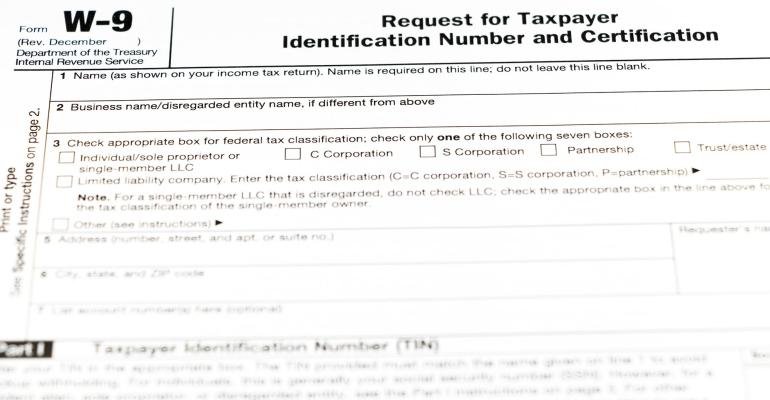Publications

The CTA: Compliance Reinstated With March 21, 2025 Filing Deadline
The recent court decision reinstating the CTA’s reporting obligations marks a significant development in corporate compliance requirements. With the March 21, 2025 deadline rapidly approaching, affected entities must act swiftly to meet their reporting obligations and avoid penalties. Given the complex nature of these requirements and the potential for future legal and legislative developments, seeking professional legal and compliance advice is highly recommended.
Entities can complete their BOI reports through the FinCEN portal here. Time is of the essence—act now to ensure compliance and avoid unnecessary legal and financial repercussions.

Court Blocks Corporate Transparency Act: A Win For Federalism?
The U.S. District Court for the Eastern District of Texas issued a nationwide preliminary injunction against the enforcement of the Corporate Transparency Act (CTA), questioning its constitutionality and its impact on small businesses. The CTA, enacted as part of broader anti-money laundering efforts, mandates companies to disclose their beneficial ownership information to a federal database maintained by the Financial Crimes Enforcement Network (FinCEN). The plaintiffs, including small business owners and a trade association, argued that the CTA compels speech and association, infringing on First Amendment protections. They also raised concerns about privacy violations under the Fourth Amendment, given the extensive personal information required.

Contrasting Tax Overhauls: Project 2025 Vs. Democratic Reform
As the 2024 elections approach, tax reform is once again a hot topic. Project 2025, spearheaded by the Heritage Foundation, offers a sweeping overhaul of the U.S. tax system and various federal policies. This ambitious plan, designed to be implemented by a future Republican administration, includes significant changes to tax laws and administration. On the other side of the political spectrum, Democrats and other left-leaning groups have also put forth their own tax reform proposals, aiming to address income inequality and generate revenue for social programs.

IRS Form W-9 Changes and Their Impact on Trusts and Estates
In March 2024, the Internal Revenue Service (IRS) unveiled a revised version of Form W-9, Request for Taxpayer Identification Number and Certification, marking a significant update since its last revision in 2018. This change introduces new reporting requirements, particularly affecting flow-through entities such as trusts and estates. Refiliing may be necessary in certain circumstances.

Corporate Transparency Act: Updating Legal and Other Documents
Practitioners need to modify their procedures to accommodate new filing requirements of the Corporate Transparency Act (CTA) took effect Jan. 1, 2024. Hers are practical steps practitioners should take to modify their practices to accommodate the new CTA requirements.

Cracking the Code: BOI and Trusts for Accountants
This is a critical moment for accountancy practices to showcase their expertise in trust management and CTA compliance. Staying updated with these developments and proactively managing reporting obligations will be essential for navigating the regulatory landscape with the Corporate Transparency Act of 2024.

The Biggest Issue You Have Never Heard of - Complying with the Corporate Transparency Act
Are you an owner of a business, of real estate, or of other property organized as a corporation, limited liability company, limited partnership or other entity created by filing with a Secretary of State office? If yes, then you and your company will need to file information with the Treasury Department on yourself, your company, and every beneficial owner of an interest in your company starting January 1, 2024. If you do not, you face a fine up to $10,000, up to 2 years in jail, or both for each failure to report. Get started now. how to comply with the strict requirements of the new Corporate Transparency Act. (CTA). Determine whether the CTA applies to you and your company and if so, what you will need to report

The Year Ahead - Proposed Tax Changes And Their Impact.
Tomorrow, January 2oth, Joe Biden will be sworn in and for the first time since 2009, the Democrats will control the White House, the House, and the Senate (though with Vice President Harris providing the tie-breaking vote). During the campaign there where a number of proposals, here are some:
● Increase corporate tax rates from 21% to 28%,
● For companies with over $100 million in net annual income, a corporate minimum tax of 15%, though net operating losses and foreign tax credits still apply,
● Increase the Global Intangible Low-Tax Income tax rates, imposed on foreign subsidiaries of US companies, from 10.5% to 21%,

Forbes: Planning Checklist For S. Corp. Shareholders
When income is distributed to stockholders of U.S. corporations there are two levels of taxation: one at the corporate level (as adjusted net income) and one at the stockholder level (as dividend income). If the corporation and shareholders elect, the distributions to stockholders are treated as adjusted net income to the stockholder and the corporation pays no income taxes. This election is limited to small business corporations (a so-called S. Corp.) which are defined as a domestic U.S. corporation, which is not an ineligible corporation (a financial banking or DISC corporation), which does not have more than 100 eligible shareholders, all stockholders must be eligible persons or entities, and has only one class of stock outstanding.
